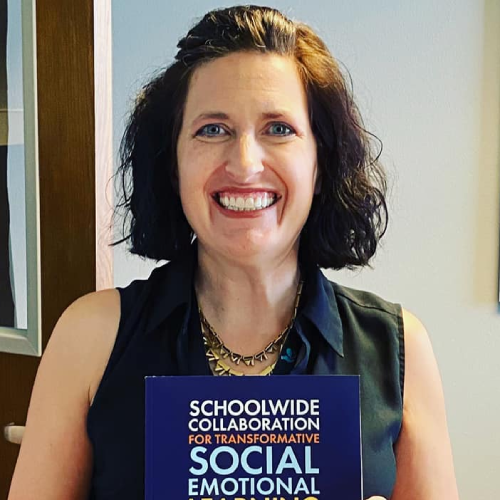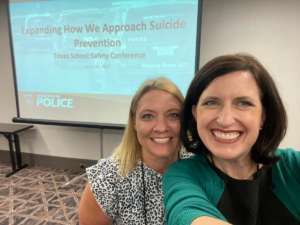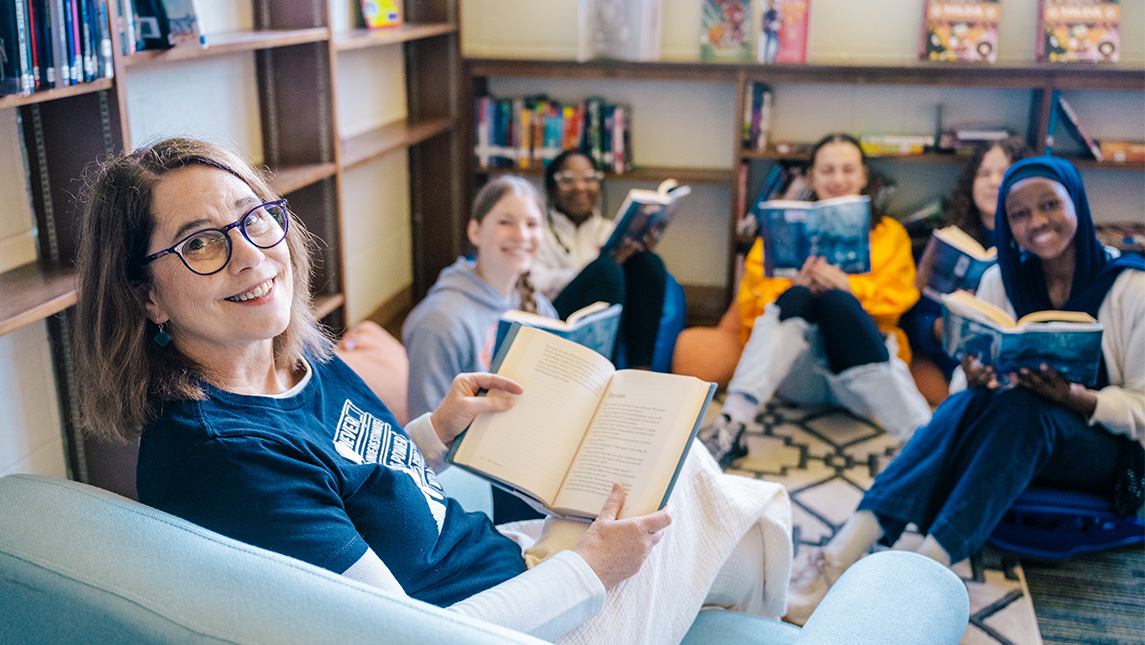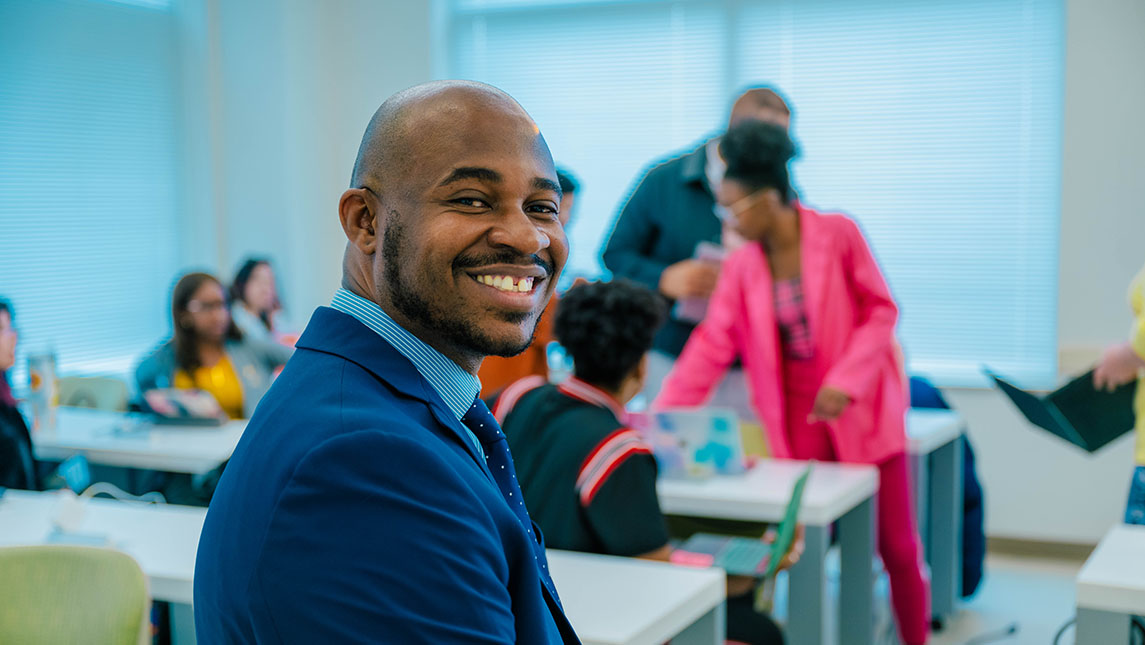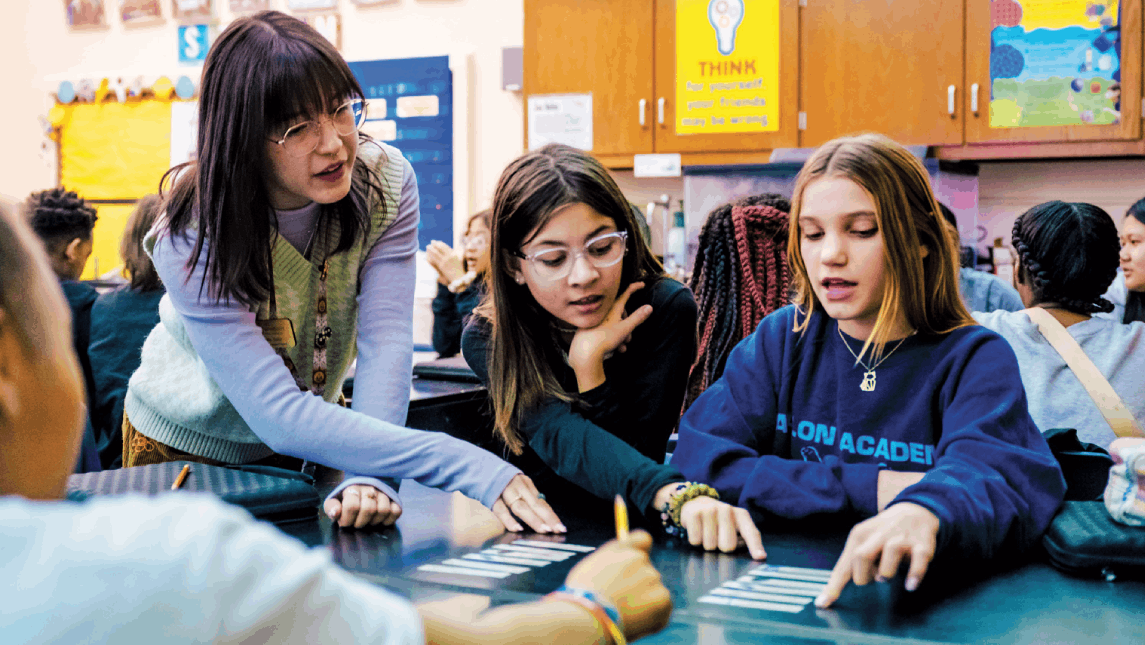The Round Rock Independent School District, just north of Austin, Texas, serves about 45,000 students and is where Dr. Amy Grosso, a 2008 Ph.D. graduate of UNC Greensboro’s Department of Counseling and Educational Development (CED), has helped to implement what may be the future of the relationship between schools and the police.
Grosso is the Director of Behavioral Health Services for Round Rock ISD and was integral in building the district’s own police department. With contracting school resource officers no longer an option, the district established the department and wants to reimagine school policing, providing alternatives to arresting students by working in conjunction with Grosso and her staff of social workers.
“We have not found this structure anywhere else in the nation, within a school district,” said Grosso. “Our district decided to create their own police department, but wanted to do it differently. We said you only hear two options in the world – it’s the status quo of policing, or just no police at all. And so the community wanted something different. That’s why we have this new model of policing that really focuses on not criminalizing juvenile behavior.”
This system has received positive feedback from those in the field and has led to Grosso and her staff presenting at conferences across not only Texas, but the nation.
Grosso said, “We really feel like we’re giving families the best available services possible. If a student is struggling, the social workers provide services, not only for the student, but the family, too. What we try to talk about here in our community is that even if you don’t have police at schools, police are going to get called to schools because there are certain things that happen. So we always say, ‘Would you rather it be an officer that we’ve hired, and we’ve trained?’ – I do Mental Health First Aid Youth with the officers and we get to pick which type of officers we want – ‘Or would you rather just whoever you happen to call, either the sheriff’s office or the city police, and you just get whoever is next in the rotation?’”
Even though the program has been in place for a couple of years, continuing to inform the community and make them aware of how this system works is important. “There are still some people that don’t understand completely and think we just shouldn’t have police at all. We’re in the start of our third year and I think they’re slowly starting to see that the way we’re doing it is actually helping kids. We’re actually able to divert more kids from the school-to-prison pipeline than if we didn’t have it,” she added.
This structure is not the norm for the officers, either. Finding the right officers for this program is critical to its success. Grosso has been involved in that process from the start, helping to craft interview questions and participating in the interview process to ensure that the officers buy into the program. The officers, and entire department, have to respect the work of behavioral health specialists. She has seen that officers have been thankful to have a mental health professional to turn to for assistance in certain situations.
She said, “A lot of our officers serve as mentors to our students, and being able to check up on them really helps. Then the social workers are working with the families and connecting them to resources. So we really get to see the whole picture. I do think it’s an amazing model. At the end of the day, students are better off because of it.”
Grosso is also very involved with the American Foundation for Suicide Prevention where she was highlighted as one of their top volunteers in this year’s annual report. She has been volunteering with that group for nine years and feels that it is one of the things of which she is most proud.
“That’s probably my biggest passion in life – how do we help look at mental health in the same way we look at physical health, and that there’s really not any difference? It’s just health,” Grosso said.
The native of Texas made her way to North Carolina after completing her master’s degree at Baylor University. After speaking with one of her professors at Baylor, who was suggesting doctoral programs in Texas, Grosso told him she was not opposed to leaving the state and he quickly suggested that she look into the counseling program at UNC Greensboro’s School of Education.
Grosso credits her time at UNCG being trained to do research and use data to explain and back up ideas as a factor in where she is today. She also honed her critical thinking skills as a part of the CED program. She adds that her experience at UNCG has allowed her to grow into her potential.
“Dr. Jane Myers was my dissertation chair and there are so many times her voice is in my head about things I’m doing. I think it’s the close, collaborative relationships that you have with your professors there, because it’s small enough that you know your professors that influence you every day. My journey also shows that a Ph.D. can be useful outside of academia. I have found my way because of the degree I have.”
One of the things Grosso enjoyed most during her time on campus was the 12 hours of required coursework she had to do outside of her department. These courses help students broaden their way of thinking. Grosso completed her hours in women and gender studies where she met new people with whom she remains in contact today. Spending those hours on something that was different from what was within her field allowed her to grow and think in different ways.
Her advice for others considering enrolling in UNCG’s CED program is to “get to know some of the professors before you say yes.” She added, “I had the opportunity before I even applied to go meet with Dr. (Criag) Cashwell and I knew he was someone I wanted to work with. I think those relationships are beyond critical to success in a Ph.D. program. Knowing that there’s someone there that you want to work with and that you really see that can help you grow in new ways, I think is really important.”
You can follow Dr. Grosso’s blog at this site.
